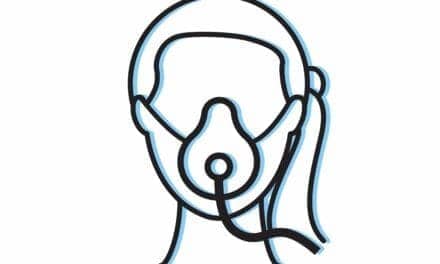New National Sleep Foundation chairman Richard K. Bogan, MD, will continue to enhance the knowledge base of healthcare professionals and patients.
Richard K. Bogan, MD, has been elected chair of the National Sleep Foundation (NSF), a national nonprofit dedicated to educating the public on sleep and sleep disorders.
An associate clinical professor at the University of South Carolina School of Medicine and associate clinical professor at the Medical University of South Carolina in Charleston, SC, Bogan has long been an advocate for educating other clinicians and the public about the importance of sleep to health. He is excited to continue these efforts in his new role, he says.
Bogan is also the president of Bogan Sleep Consultants LLC and chief medical officer of SleepMed, a sleep diagnostics company dedicated to improving access to patient care.
In the following interview with Sleep Review, Bogan discusses his new role at the NSF as well as his expertise in sleep health.
Sleep Review (SR): Please describe your background. How did you decide to become a sleep specialist?
Richard K. Bogan, MD: I trained in pulmonary critical care. I studied at the [Medical] University [of South Carolina] in Charleston and then went on to [the University of] Alabama, where I did my specialty training. Being a pulmonologist and being interested in breathing, it became obvious that people breathe differently when they are asleep, so that was my introduction into sleep medicine.
As I practiced pulmonary critical care, I developed one of the earliest sleep labs in Columbia, SC, and it became an early-accredited center. But after starting that center, I recognized that the prevalence of sleep disorders was quite higher than expected, so I developed a company with the intent to try to improve patient access.
We started a company that basically set up sleep labs and trained pulmonologists and neurologists to evaluate and screen patients with sleep apnea and other sleep disorders and basically triaged them to get them access to more advanced care. That company grew and eventually became SleepMed in 1990 and merged with a company called DigiTrace.
The whole idea was to try to improve access by increasing the number of specialists who had an interest in sleep and develop their sleep expertise, so we gradually grew the company to be one of the largest sleep diagnostic companies in the United States.
We were doing about 90,000 sleep studies a year in the lab and currently are doing about 14,000 home sleep studies a month, so I think we have improved patient access—which is the goal.
SR: What made you interested in becoming chair of the NSF?
Bogan: The National Sleep Foundation is trying to improve the knowledge of family and internal medicine providers but also to provide a resource to patients in terms of understanding sleep disorders and working with our policymakers to help them understand sleep and sleep disorders and what they can do to improve sleep in our population.
If you go to a primary care practice and you sit in their waiting room, 30% of the patients are sleepy, 30% can’t sleep, over half are tired, and 20 to 40% snore. So the point is that primary care physicians are the point of entry. All these tired people, sleepy people who may have sleep apnea need to be aware of the influence of sleep on overall health.
SR: What are you most excited about in this new role?
Bogan: Our programs that we have now are quite useful. We have two websites, sleep.org and sleepfoundation.org. Those two websites get about 90,000 visitors a day. One of our big missions is to inform the public about sleep and sleep disorders and sleep science and how important it is to their health. As we know, sleep is a fundamental homeostatic drive. You have to be able to sleep in order to survive, and if you have a sleep disorder it affects your health. We are really oriented towards the public in terms of providing them information.
The other project is trying to enhance the knowledge base of non-sleep physicians. And one of the projects that we have related to that is a CME [continuing medical education] program for clinicians and experts affiliated with the NSF and provides education to those individuals. Typically they are in seminars, hands-on and case-based lectures for primary care providers.
As chairman of the board, I’ll be working with the executive committee and the chief executive officer in working on these projects. I’ll be guiding the board and the committee to accomplish our mission.
Lisa Spear is associate editor of Sleep Review.





